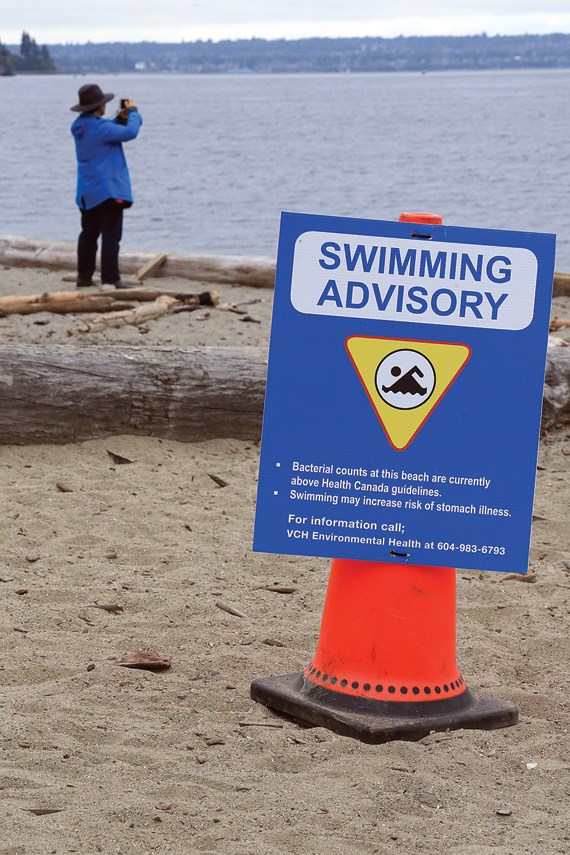Vancouver Coastal Health is warning the public to stay on dry land in West Vancouver as E. coli counts have reached potentially dangerous levels in the waters off Ambleside Park, Whytecliff Park and Sandy Cove.
“Please do not swim or wade in these waters until the closure notice is lifted,” a statement from the District of West Vancouver warned on Tuesday evening.
Coming into contact with the bacteria that occurs naturally in fecal matter can lead to gastro-intestinal illness or infection.
Metro Vancouver tests the water at swimming beaches regularly and Vancouver Coastal Health’s medical health officers may close the beaches when the samples show an average of more than 200 E. coli per 100 millilitres of water over five tests.
While the North Shore’s beaches have been in the safe threshold so far this summer, mostly in the 20s, individual tests at West Vancouver’s beaches this week found E. coli counts over more than 400 per ml.
The City of Vancouver has had to close Kistilano Beach, and Sunset Beach and Trout Lake this week as well.
The contamination could be coming from sewages discharge on land, from boats or from people and animals in the water.
“The reason for the elevated levels is not yet known. VCH, District of West Vancouver, City of Vancouver and Metro Vancouver staff are looking at the potential causes,” a statement from the health authority read. “It is not unusual to have beach closures at some beaches during the summer within the VCH region.”
West Vancouver’s beaches were closed for much of the summer of 2014 when E. coli levels spiked. The cause in that case was never found.
The next beach water quality report from VCH is due on Friday.



